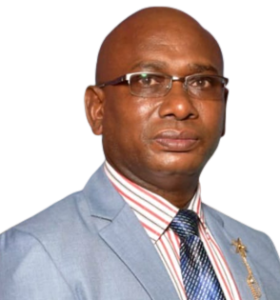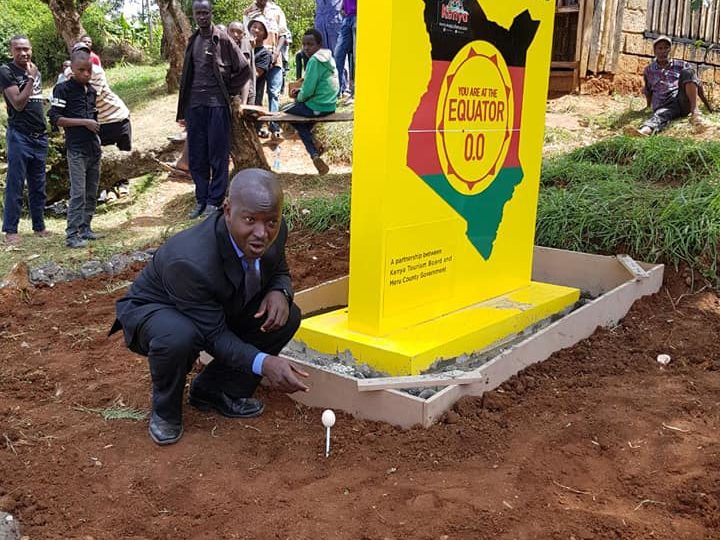
Mr. Titus Kinoti
By Titus Kinoti
Food is a basic necessity and a basic need. It’s a basic human right to have food to keep alive. Access to adequate and healthy food is also supported by the 2010 Kenya constitution.
Inflation bite: Inflation is the increase in the price of goods and services in an economy. It translates to reducing the purchasing power of a currency.
When the money supply increases, liquidity rises, people’s purchasing power grows, and therefore, they’re willing to spend on necessities and luxuries (growing economy and money supply)
Suggested solutions to inflation: favorable government policies; sustainable supply of money to the citizens
Adequate cash and food supply: To ensure there is a continuous supply of food and cash we need to bring back the old ways of trading and have a hybrid system where both can be applied. Our past generations used to practice barter trade where there was the exchange of the preferred goods in a marketplace. Farm animals would be exchanged for grains or clothes or beauty products. The use of currencies started in the Kenya Coastal strip in the 18th and 19th centuries by Indians, Arabs, and Europeans. Slowly, over time, we have moved from the traditional methods of trading to the modern ones where the currency is the medium of exchange.
USA is controlling the whole world because of the strong US dollar against the feeble currencies. The Euro was coming up strongly recently against the US dollar but the Americans have started buying these dollars and hiding to create artificial scarcity hence the inflation. Until when will Americans control our economies, our lives, and our power to buy and sell?
African society is collapsing mainly because of inflation. The LDC will continue to collapse because we have no control over the hard currency. Our Kenya shilling will continue to deteriorate against the hard currencies because the big boys are seated on the control panel. The volatility of this shilling will make our economy unstable, our market structures weak, and unsustainable growth with uncertainty in the future.
Barter trading is the sure answer: Can we trade without touching money? If I have goats and I want to buy cooking oil and my neighbor has this oil, I don’t need to touch cash. We can easily exchange at the agreed value after a heated negotiation to balance the values to be exchanged through swapping of goods.
This is not hot air because Nigeria and Morocco are currently doing very effective barter trade across the border. Morocco is the best fertilizer-producing country in Africa. Nigeria is also a giant in oil production in the same region. The two countries sat down and agreed on the mode of exchanging their pleasantries and this has been tested, proven, and working for the dual. God gave us balanced natural goods and no man should starve in this world without access to what you don’t have.
Even in marriage in Africa, no man misses a woman to marry because you have no cash or goods to pay as the dowry price. ‘Wazee’s’ allow you to marry their daughters and when you get something to give to the in-laws, you freely knock at their door and say ‘ Muthoni, nimekuja na bla bla bla..’
In Meru, we exchange five livestock with a girl. But the actual value of the girl is much higher than the ‘Ng’ombe Tano’. What’s most important in Africa is keeping a relationship with your neighbor. If you lack today, I can help you, and tomorrow it will be your turn to pay back. This is the Ubuntu, this is the ‘undugu’ that we should revive and embrace to strengthen our feeble economies.
So, getting back to Morocco and Nigeria….. Fertilizer supply has improved agricultural production in Nigeria and in fact, this country is in the top African countries producing food for its citizens and exporting too, yet the fertilizer belongs to Morocco which is a lesser agricultural producing country compared with its neighbor.
Morocco on the other side benefits from the petroleum products from Nigeria. It’s a win-win situation.
Ethiopia is one of the best coffee-producing and exporting countries in the World. The main reason is simply because of having a first-mover advantage. Most of the coffee originated from Ethiopia and the area under coffee is huge. The government, unlike other countries, buys coffee for their farmers and does trading on behalf of the poor farmers who are busy with their farmers without much time and experience in selling finished products in the market. This ensures a continuous supply of money into the pockets of the farmers and other value chain players. They are poor because for them it’s about living from hand to mouth and most of the time they are cashless.
Why doesn’t Kenya buy coffee from the farmers too? Middle East and Europe are the main consumers of tea and coffee and if we enter agreements with these countries to supply them with food and refreshments in exchange for the desired goods, the economy of the smallholder farmers would be vibrant and sustainable. The government revenue would be improved and external borrowing would decline.
Nigeria has palm oil and we consume a lot of it as cooking oil. Why not exchange the cooking oil with maize, Irish potato, green grams, sweet potato, and fish? Why not exchange petroleum oil from Nigeria with livestock products, cotton, pyrethrum, avocados, and mangoes? Why not exchange fertilizers from Morocco with tea, coffee, beans, honey, milk, simsim, soya, cabbage, tomatoes, yams, arrowroot, fruit juices, sorghum, millet, tusker, chicken, and eggs? What we produce with these fertilizers we sell to Morocco and would make it healthier and wealthier. Kenya wanted to have its own fertilizer factory and we have never achieved that dream.
Offset nature’s balancing equation. It’s about “giving me I gave you in equal proportion”. This is about Africanising our trade and needs for self-sufficiency. Africa2africa, Black2black, neighbor2neighbor approaches.
Africa has many mouths to feed and this is a huge market for our agriculture and agro-processing industries and other related sectors like transport, water, ICT, communication, etc.
National oil corporations should be buying petroleum products in this arrangement. In the middle East there are some countries which buy oil for their citizens and Kenya should not be an exception. This way, the government will try to cushion the fuel prices by playing in the market forces.
National Cereals and Produce Board should be renamed NAPB. National Agricultural Produce Board can buy the farmers’ produce and invest in cold rooms and storage structures and pay farmers promptly upon delivery. The farmer is then left to focus on his core function of production without exploitation by the market.
NCPB is not helping all the farmers because of accessibility. Farmers travel for long distances to get a few bags of fertilizer because of limited quantities per farmer. Please evaluate the success of the subsidy program and try to improve it so as to benefit as many farmers as possible. We need to modernize our agriculture so that we touch the emotions of the farmer for improved cash and food for their stomachs.
According to the Nuts and Oil crops Directorate, KENYA produced only 34% of the 600,000 metric tons required per year.
Palms, Cashew nuts, macadamia, ground nuts, soya, sunflower, simsim, and cotton can be boosted to increase the available oil and fats locally. We use about 50 billion to import this product that can be produced locally and control the balance of trade and unnecessary exploitation from cheap import and use of foreign exchange currency.
Complete value chain programs need to be embraced for the farmers to get looped in an end-to-end arrangement for sustainability.
The arid and the semi-arid regions should be our “gold-digging” grounds because their potential is huge. Where others see problems, let us see opportunities for growth. NYS can be used to transform these ASAL areas through farming industrial crops and adoption by the pastoralist may be slow but eventually, win to transform the lives in the dry zones.
Pastures and fodder can be grown for hay, silage and green feeds to support the livestock communities in both highlands and ASAL areas. On October 13th, 1964, Prime Minister Hon. Jomo Kenyatta said at the NYS pass-out ceremony that if the world put down guns and took up spades like the NYS, there would be no famine and insecurities. 58 years later, we are yet to actualize this dream.
Kenya Revenue Authority has improved its service delivery over the years, especially in the online services and we appreciate this good work for better service delivery with fewer incidences of corruption to the hard-working citizens.
However, a number of people are being strangled by the KRA, especially small and medium-scale entrepreneurs. I have customers who have been told to pay 10 -50m within one year which is crippling their ability to pay the suppliers. Why should KRA kill a lactating cow and still expects to suckle the same? It’s good to reschedule or agree on a flexible payment plan for a win-win situation instead of attaching the bank account to KRA to siphon everything. “Maziwa itatoka wapi kesho”?? Food for thought.
Ruto is a man of action. He is a reformist and an astute leader. He listens and is a strategic as well as a transformative leader.
Yes, we can grow Kenya from a feeble to an able state through your leadership and direction.
Your Excellency, these are ideas from a Hustler who calls himself “ FROM FEEBLE TO ABLE”
Titus Kinoti is an author, agricultural expert, and motivational speaker.




